Confederate Truths: Documents of the Confederate & Neo-Confederate Tradition from 1787 to the Present.
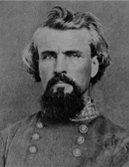

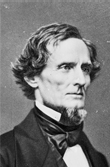
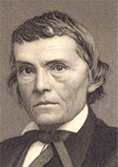

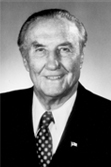
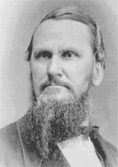
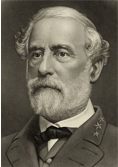
Thomas W. Gregory, former Attorney General under President Wilson gives speech on Reconstruction and the Ku Klux Klan which is reprinted in the "Confederate Veteran."
Thomas W. Gregory, former Attorney General under President Wilson gives speech on Reconstruction and the Ku Klux Klan which is reprinted in the Confederate Veteran
Confederate Veteran, Vol. 29 No. 8, August 1921, pp. 292-296. The Confederate Veteran was the official publication of the United Confederate Veterans, United Daughters of the Confederacy, the Confederated Southern Memorial Associations, and the Sons of Confederate Veterans.
RECONSTRUCTION AND THE KU KLUX KLAN.
[In an address before the Bar Associations of Texas and Arkansas at Texarkana on July 10, 1906, Hon. Thomas W. Gregory, of Austin, one of the foremost lawyers of the country and a profound student of history, later Attorney General of the United States under President Wilson, gave a history of the Ku Klux Klan and the conditions which gave birth to and fostered the "Invisible Empire." As a native of Mississippi near the section of Tennessee where the Ku Klux Klan originated, he was in special position to learn of the operations of the organization. This address was recently published in large part in the Dallas News, from which the Veteran Copies.]
The original Ku Klux Klan was the protest of the manhood of the South against the violation and the sweeping aside of all legal and constitutional rights by the Federal government in Reconstruction days, the product of times and conditions which have been absolutely without parallel before or since in the history of the nation. Its purpose was to save the South from the consequences of the anarchy that was sure to follow military and "carpetbag" rule. Sending forth one hundred thousand or more armed men, the organization defied national and State authority. The Ku Klux really staged a revolution, in that it accomplished certain results when all other measures had failed. To understand the conditions from which arose the need of such an organization it is necessary to glance at national legislation and policy between 1866 and 1872. Johnson had adopted almost in toto Lincoln's plans for dealing with the Southern States, involving immediate organization of the State goverments and their representation in both houses of Congress, but Johnson became involved in wrangles with Congress, and the Republican majority insisted upon reversing the entire policy of the party and in dealing with the Southern States as conquered provinces, not as States with the same rights as other States of the Union.
The wrangling began when Johnson announced his policy toward the South, the views of leaders of the Republican party having undergone a startling change, and the first open rupture came when Johnson vetoed the "Freedmen's Bureau Bill" in February, 1866. The bill was passed in slightly different shape over his veto on July 16 of the same year. The bill gave to a bureau of the War Department jurisdiction over all matters pertaining to freedmen; provided for agents in all counties of the South, to be appointed from the army or from civil life, with all the powers of military judges; abolished the ordinary rules of procedure by law, and denied the right of trial by jury, though guaranteed in the Federal and all State Constitutions, also taking away the right of appeal. The act in other ways gave the Federal agents tyrannical and uncontitutional powers, and it was followed in the spring and summer of 1867 with three other bills, all passed over the President's veto, "providing for the more efficient government of the Rebel States." The latter bills divided ten of the Southern States into five military districts, each to be ruled over by an army officer not below the rank of brigadier general and providing for arbitrary and unchecked powers in such officials, President Johnson declaring in one of his veto messages: "Such a power has not been wielded by any monarch in England for more than five hundred years. In all that time no people who speak the English language have borne such servitude."
In this legislation it was also provided that the prescribed military rule was to continue until the ten States held constitutional conventions in a manner set out, elected delegates thereto under domination of the military, adopted constitutions satisfactory to Congress, had their legislatures adopt the Fourteenth Amendment to the Constitution of the United States, and until said amendment had been adopted by three-fourths of the States of the entire Union.
When it is added that up to 1872 all white men were disfranchised and forbidden to hold any State or Federal office who had been engaged in insurrection or given aid or comfort to the enemies of the United States and had previously held any State or Federal office, it will be seen how complete was the scheme of Reconstruction.
The only possible excuse for the plan was that the condition of the country demanded martial law and the suspension of the writ of habeas corpus, and this is fully met by calling attention to the fact that the suspension of this great writ is prohibited by the Constitution except in cases of "rebellion or invasion." No one will seriously contend that either of these conditions existed.
The civil rights bill, passed several years later through the influence of Charles Sumner, completed what are usually considered the Reconstruction acts. Sumner is said to have been a believer in the social equality of the negro, and for the purpose of forcing this on the South a bill was put through Congress authorizing the United States courts by heavy penalties to compel admission of negroes to hotels, theaters, schools, etc., and upon juries. This last act was held unconstitutional by the Supreme Court of the United States in 1883.
The writer of this paper is willing to let these acts speak for themselves without further comment.
But if the Reconstruction laws were unconstitutional and wrong and vicious in theory, their practical application to the situation was infinitely worse; substantially all of the intelligent class of the South were disfranchised; the negroes, not one of whom out of every hundred could either read or write, constituted almost the entire voting population; carpet-baggers from the North and scalawags from the South, composed almost exclusively of the very scum of creation, organized and controlled the negro vote, held the more lucrative offices, and began an era of corruption and plunder unheard of before in the history of America. Even Republican papers admitted the conditions.
Undoubtedly a few good men came South at the close of the war, but it can be truthfully said of the great mass that no Goth who followed the banner of Alaric to the sack of Rome was a more ruthless destroyer of property or held in greater contempt the rights of a prostrate people than did the carpet-baggers who followed in the wake of the Federal armies.
A few figures will give some faint idea of the results of this saturnalia of ignorance and corruption. In Missiissppi 6,400,000 acres of land, being twenty per cent of the total acreage of the State, was forfeited for taxes, the State tax for 1871 being four times as great as for 1869, that of 1873 eight times as great, and that of 1874 fourteen times as great. State, county, and municipal taxes aggregated an amount equivalent to confiscation, and values for taxation were frequently placed by negro boards of supervisors at from two to four times the actual values.
In South Carolina the taxes in 1860 amounted to $400,000, while in 1871 they amounted to $2,000,000, though the taxable values had shrunk from $490,000,000 to $184,000,000, thus making the rate of taxation almost fifteen times greater. The result was that a large part of the land was forfeited and lay waste or was parceled out among negroes. Notwithstanding this enormous tax, the debt of the State increased from $1,000,000 in 1867 to $5,000,000 in 1868 and to $30,000,000 in 1872.
During the same period the debt of Louisiana increased from $6,500,000 to $50,000,000.
The affairs of counties, towns, and villages were in even worse condition, most of their officers being negroes who could neither read nor write and "who knew none of the uses of authority except its insolences."
The utter bankruptcy of States, counties, and cities and their citizens was the least of the evils which prevailed.
Thousands of negroes left the farms and crowded into the towns and villages to live on the bounty of the government and exercise the rights of suffrage and office-holding denied to their late masters. Many of them were armed and organized into militia companies, Southern white men being excluded from these bodies. The agents of the Freedmen's Bureau and the judges of the courts were largely prejudiced against the native whites, and frequently profoundly ignorant, and many members of the constabulary were unable to write a return upon a writ. Drunken and insolent negroes thronged the streets, and white women were frequently subjected to the vilest insults. Federal troops were quartered in the towns and often used to enforce the malice or caprice of agents of the Freedmen's Bureau and negroes and Northern adventurers. Men and women were frequently arrested without warrant or specific charge and carried forty or fifty miles from their homes and imprisoned for indefinite periods without a hearing and finally discharged without ever appearing before a judge. A former Governor of Texas recently told me that he was arrested at his home by a file of soldiers and taken to Austin and with much difficulty rescued from them while on his way to the bull pen to be incarcerated with the vilest criminals on the vague charge that he "was an impediment to reconstruction." While a distinguished member of the Texas bar was trying a case in the district court at Houston an order reached the district judge from General Griffin, and in accordance with its terms the jury was discharged, and twelve negroes, not one of whom could read or write, were impanelled in its place. In many sections public lectures and newspapers were suppressed. In South Carolina a State judge passed sentence upon a man for theft. General Sickles had the judge arrested and ordered him to revoke the sentence, and on his refusal to do so the prisoner was taken from the sheriff by force and set free. General Canby removed a judge from office and appointed a man in his place because he refused to interpret the law in accordance with the views of the military. In Georgia civil officers were arbitrarily removed by General Meade. In Alabama General Wood issued an order prohibiting Episcopal ministers in that State from performing divine services because the bishop of the diocese (Bishop Wilmer) had recommended that prayer for the President of the United States be omitted from the service. In Mississippi orders were issued by the military forbidding citizens from assembling under any pretense, the Governor of the State and other officers were removed, and the chief justice resigned because the Supreme Court was overawed by armed men. The Governor of Louisiana was removed by General Sheridan. These are a few of many such incidents.
Under the regime of the Freedmen's Bureau and the military satrap conditions were bad, but among the agents and military officers were some men of high character and perfect honesty; but after an election at which United States soldiers stood at the voting boxes and the influential white men of the South were disfranchised, the negro and carpetbagger took complete charge, and it was seen that still darker days were at hand.
The Supreme Court of the United States, that august tribunal intended by the founders of the government as a bulwark against unconstitutional legislation and executive tyranny, had been appealed to in vain.
It is the opinion of the writer that between 1862 and 1875 the Supreme Court of the United States shrank from a contest with the dominant legislative branch of the national government. During the period referred to the court was treated by Congress with the greatest contempt, and when President Johnson insisted on testing his power to remove Stanton as Secretary of War under the terms of the "tenure of office act" by an appeal to the Supreme Court, Congress refused to even consider the proposition and attempted to impeach the President for refusing to construe the act in accordance with the views of the legislative department of the government.
Congress had deliberately usurped the powers of the executive and judicial branches, and in their exercise would hear to no check from any source constitutional or otherwise.
In 1867 it seemed that every remedy had been tried in vain and the limit of endurance reached. The men of the South had seen the last hope from constituted authority dissipated; there remained "nothing less than the corruption and destruction of their society, a reign of ignorance, a regime of power basely used," under which they and their wives and children could hope for no protection of life, liberty, or property, and at this point they gathered for resistance. Curiously enough fate had prepared a potent weapon, and at the critical moment thrust it into the hands of these desperate and despairing men.
In June, 1866, in the little town of Pulaski, in Southern Tennessee, near the Alabama line, a few young men, finding time hanging heavily on their hands, met in a law office one night and concluded to organize a society of some kind. Some one suggested that they call it "Kukloid," from the Greek word "Kuklos," meaning a circle, and some other person present said: "Call it "Ku Klux." The word "Klan" was then added to complete the alliteration. In order to arouse public curiosity and surround the organization with an atmosphere of mystery, various devices were resorted to. The oath bound the member to absolute secrecy in regard to everything pertaining to the order, and he was prohibited from disclosing the fact that he was a Ku Klux or giving the name of any other member or soliciting membership. Each member was required to appear at the meetings arrayed in a long robe with a white mask and very tall hat made of white pasteboard. The meetings were held at night in the cellar of a deserted brick house standing on a hill near the town. The officers were a "Grand Cyclops," who presided at the meetings; a "Grand Maji," who was a kind of vice president; a "Grand Turk," or marshal; a "Grand Exchequer," who acted as treasurer; and two "Lictors," who were the outer and inner guards of the "den." One of these "Lictors" was stationed in front of the old ruin and another between it and town, both dressed in the hideous regalia of the order and bearing enormous spears. The only business transacted at the meetings was the initiation of new members with the most fantastic of ceremonies, and the only purpose of the order was to mystify outsiders and have fun.
During the summer of 1866 the membership rapidly increased. The local papers contained many references to it, and the probable objects of the movement were being generally discussed. Young men from the country and neighboring counties were initiated and organized "dens" in their neighborhoods, the same mystery and secrecy being maintained. The red lights and uproar of initiations seen and heard at midnight from graveyards and haunted houses were duly reported and repeated in the negro quarters and among whites of the lower classes with every exaggeration which ignorance and superstition could suggest. Acting on mysterious statements from gigantic shrouded figures who frequented lonely country roads at midnight, it began to be bruited abroad that the Ku Klux were the spirits of dead Confederate soldiers. Travel along the roads on which the ghostly "Lictors" stood sentinel was almost discontinued at night, and even the wisest and least imaginative persons began to wonder what it all meant.
The most remarkable characteristics of the negro race at the present day are their vivid imagination and universal superstition. During slavery and the years immediately following the war, for obvious reasons, these characteristics were much more pronounced than now.
The Ku Klux readily appealed to these people as an incarnation of the powers of darkness, and it was soon noticed that in neighborhoods where "dens" were actively operating no negro could be induced to budge beyond his doorsill after dark.
The rapidity with which the order spread during the winter of 1866-67 was marvelous, and yet there was still no serious purpose behind the movement and nothing to support it beyond the enjoyment of the initiations and the baffled curiosity of the mystified public. As time went by, howeever, and the members began to realize the amazing influence of the unknown over the minds and actions of men, and what a power was in their hands, and saw the unexampled rapidity with which the order crossed mountains, rivers, and States, they themselves began to be imbued with the idea that some great mission awaited the movement. The discovery of such a mission was not difficult. The need of some drastic remedy for existing conditions was recognized by all, and the terror inspired by the Ku Klux Klan suggested that it might be utilized to protect properity and suppress crime and disorder.
At this time there were probably several hundred "dens" in Middle and West Tennessee and a number in Mississippi and Alabama, but they had no general organization, no means of communication, no supreme authority, and, in fact, they had no need of such things. The idea of using the order as patrols, or "patterrollers," and regulators seemed to spontaneously spring up over the entire region dominated by the "dens" without any consultation or chance for consultation among the scattered local leaders and was promptly acted on. As soon as this developed it was deemed best to perfect a more regular organization, and in the spring of 1867 the "Grand Cyclops" of the Pulaski "den" sent out a request to all "dens" of which he had knowledge to send delegates to a convention to be held in Nashville. These delegates met secretly without attracting public attention and adopted a plan of organization. The region in which the Klan operated was to be known as "The Invisible Empire," divided into "Dominions," corresponding with congressional districts, each "Dominion" into "Provinces," corresponding with counties, and each "Province" into "dens."
The supreme head of the order was the "Grand Wizard," the ruler of a "Realm" was a "Grand Dragon," that of a "Dominion" a "Grand Titan," that of a "Province" a "Grand Giant," and that of a "den" a "Grand Cyclops."
A statement of the principles of the order, not for publication, contained the following words: "We recognize our relation to the United States government, the supremacy of the Constitution, the constitutional laws thereof, and the Union of the States thereunder."
The special objects of the order were set out as follows:
- "To protect the weak, the innocent, and the defenseless from the indignities, wrongs, and outrages of the lawless, the violent, and the brutal; to relieve the injured and the oppressed; to succor the suffering and unfortunate, and especially the widows and orphans of Confederate soldiers.
- To protect and defend the Constitution of the United States and laws passed in conformity thereto and to protect the States and people thereof from all invasion from any source whatever.
- To aid and assist in the execution of all constitutional laws and to protect the people from unlawful seizure and from trial except by their peers in conformity with the laws of the land."
The secret Nashville convention gave a still greater impetus to the movement, for the same unbearable conditions existed in almost every Southern community, and the belief that nothing could be hoped for from national or local authorities was prevalent and well founded.
It is impossible to form any idea of the number of "dens" or their size. By the fall of 1868 the Klan certainly dominated a large portion of all the Southern States except Virginia and Texas. Undoubtedly its membership was large. Its tremendous influence can hardly be conceived at the present day, and yet it is probably true that its membership embraced only a minority of the adult males in most of the communities in which it flourished.
There was in reality no supreme authority, little connection between the "Realms," not much more between the "dens" (except those in the same county), and the oaths, passwords, grips, and the initiation ceremonies were not uniform; but, so far as the writer's investigations have gone, the oath always included an obligation to support the Constitution of the United States and the cause of justice and humanity and to protect widows and orphans. The same general policy was pursued in practically every community and with the same results.
It is safe to say that ninety per cent of the work of the Klan involved no act of personal violence. In most instances mere knowledge of the fact that the Ku Klux were organized in the community and patrolled it by night accomplished most that was desired. In case the nocturnal political meetings of the negroes, organized by scalawags and carpetbaggers, proved disorderly and offensive, sheeted horsemen would be found drawn up across every road leading from the meeting place; and though not a word was spoken and no violence whatever offered, that meeting usually adjourned sine die. Sometimes the entire Klan was divided into smaller bodies, which rode all night, appearing in negro quarters distributed over a large section of the country and usually maintaining silence and molesting no one. In case a negro became insolent or dangerous, he was likely to be visited by a mounted specter some twelve feet high who asked for water, drank a bucketful with the remark that it was the first he had tasted since he was killed in the battle of Shiloh, extended a skeleton hand, or what appeared to be his skull, to his unwilling host, and departed with the suggestion that he would call again in case the owner of the cabin did not improve his manners. No one who was not raised among negroes can form the slightest conception of the potency of these methods.
In dealing with objectionable characters among the whites mysterious communications, sealed with skull and cross-bones, were usually pinned upon the doors at night, warning them to mend their ways or leave the country.
In many instances all the officers of a county were notified that it was time for them to depart, and they did so with no unnecessary delay.
But masked riders and mystery were not the only Ku Klux devices. Carpetbaggers and scalawags and their families were ostracized in all walks of life—in the Church, in the school, in business, wherever men and women or even children gathered together, no matter what the purpose or the place, the alien and the renegade, and all that belonged or pertained to them were refused recognition and consigned to outer darkness and the companionship of negroes.
In addition to these methods, there were some of a much more drastic nature. The sheeted horsemen did not merely warn and intimidate, especially when the warnings were not heeded. In many instances negroes and carpetbaggers were whipped and in rare instances shot or hanged. Notice to leave the country was frequently extended and rarely declined, and if declined the results were likely to be serious. Hanging was promptly administered to the house burner and sometimes to the murderer; the defamer of women of good character was usually whipped and sometimes executed if the offense was repeated; threats of violence and oppression of the weak and defenseless if persisted in after due warning met with drastic and sometimes cruel remedies; mere corruption in public office was too universal for punishment or even comment, but he who prostituted official power to oppress the individual, a crime prevalent from one end of the country to the other, especially in cases where it affected the widow and the orphan, was likely to be dealt with in no gentle way in case a warning was not promptly observed; those who advocated and practiced social equality of the races and incited hostility of the blacks against the whites were given a single notice to depart in haste, and they rarely took time to reply.
On account of the secret character of the Klan, it was impossible for it to defend itself against many false accusations. Violence and crimes with which it had no connection were constantly charged to it, and it is well known that many arrests were made of lawless persons clothed in the Ku Klux disguise who did have and could have had no connection whatever with the order.
But the Invisible Empire, however its sway was exercised, was a real empire. Wisely and humanely or roughly and cruelly the work was done. The State governments under carpetbag control made little headway with their freedmen's militia against the silent representatives of the white man's will. Acts of Congress and proclamations of President Grant, backed by the army of the nation, were not sufficient to meet the desperate onset of men who, armed with crude weapons, were making what seemed to them the last stand for all they held sacred.
Time is not allowed to review the history of the order in the different States. In some it lasted much longer than in others, because the conditions it was intended to remedy lasted longer.
In September, 1868, Governor Brownlow called the legislature of Tennessee together and had an act passed comparable only to the Reconstruction acts of Congress. By its terms association or connection with the Klan was punished by a fine of $500 and imprisonment in the penitentiary for not less than five years. Every inhabitant of the State was constitutad an officer with power to arrest without process anyone known to be, or suspected of being, a Ku Klux; to feed, lodge, entertain, or conceal a Ku Klux subjected the offender to a fine of $500 and imprisonment for five years, and informers were offered one-half of the fine.
Notwithstanding these drastic provisions, the Ku Klux continued to actively operate in Tennessee for about six months thereafter. In the latter part of February, 1869, the Grand Wizard, a citizen of Tennessee, issued a proclamation to his subjects, reciting the legislation against the Klan, stating that the order had now largely accomplished the purposes for which it had been organized; that the civil law now afforded adequate protection to life and property; that robbery and lawlessness were no longer unrebuked; that the better elements of society were no longer in dread for the safety of their property, persons, and families; that the Grand Wizard had been invested with power to determine questions of paramount importance, and in the exercise of the power so conferred he declared the Klan dissolved and disbanded. It is believed that the Grand Wizard was no less a personage than Nathan Bedford Forrest. As the possessor of dauntless and sustained courage, resourcefulness, and a grim disregard of all consequences, no more ideal leader of such a movement ever appeared upon the American stage. This proclamation was addressed to all "Realms," "Dominions," "Provinces," and "dens" of the "Empire," but it had little effect beyond the borders of one State. Tennessee was the first Southern State in which constitutional government was restored and the scheme of Reconstruction abandoned. The writer is satisfied that as late as 1872 the Klan was a potent factor in other States.
For several years after the Ku Klux as such had abandoned their organization practically the same movement was kept up under the names of "Constitutional Union Guards," "Pale Faces," "White Brotherhood," "White League," and "Knights of the White Camelia." As a general thing, the work done by these later organizations was more reckless and violent in its character, there was less justification for it after 1872, and more bloodshed resulted than grew out of the operations of the original movement.
As a general rule, this grim protest against unbearable conditions disappeared with the worst of the conditions and sooner.
In 1870, 1871, and 1872 the Ku Klux Klan consumed a large part of the attention of Congress, the President, and the army of the United States; investigating committees visited every section of the South, many volumes of testimony were compiled, hundreds of speeches were made, martial law was declared in some instances, and proclamations issued in others, still more drastic laws were passed; but in the face of all this the movement relentlessly moved on to the accomplishment of its purposes.
The Senate investigating committee and the joint committee of the two houses of Congress each presented majority and minority reports; the first to the effect that a conspiracy existed in the South of a political nature against law and the negro; the second that misgovernment and criminal exploiting of the country by the Reconstruction leaders had provoked natural resistance.
The great debates in Congress and the press of the country began to educate the people as to the awful conditions which had prevailed and the revolution resorted to as a remedy.
In 1872 Congress passed an act restoring the right to vote and hold office to the real leaders and capable men of the South, the worst conditions had disappeared, the troops had been withdrawn, and what was known in the North as "The Great Ku Klux Conspiracy" was at an end.
Just how much the acts of Congress and of the President had to do with the disappearance of the order it is hard to say, but the scalawag and the carpetbagger disappeared about the same time, and it might be said that the purposes of the Klan had been substantially accomplished. The belief of most people in the North that the movement was organized and controlled by roughs and criminals associated together for the commission of crime and bent on reenslaving the negro and driving his Northern protectors from the South is not sustained by the facts. The men who engaged in this movement were largely of the very best.
Speaking of the typical Southern man of that day, Daniel H. Chamberlain, the Reconstruction ruler of South Carolina, said: "I consider him a distinct and really noble growth of our American soil. For if fortitude under good and under evil fortune, if endurance without complaint of what comes in the tide of human affairs, if a grim clinging to ideals once charming, if vigor and resiliency of character and spirit under defeat and poverty and distress, if a steady love of learning and letters when libraries were lost in flames and the wreckage of war, if self-restraint when the long-delayed relief at last came—if, I say, all these qualities are parts of real heroism, if these qualities can vivify and ennoble a man or a people, then our own South may lay claim to an honored place among the differing types of our great common race."
Did the end aimed at and accomplished by the Ku Klux Klan justify the movement? The opinion of the writer is that the movement was fully justified, though he of course does not approve of crimes and excesses incident to it.
The abuses under which the American colonies of England revolted in 1776 were mere child's play compared to those borne by the South during the period of Reconstruction, and the success of the later movement as a justification of a resort to revolutionary methods was as pronounced as that of the former.
Whatever may be your views, I leave the question with you, repeating the proposition with which I began, that amid conditions as they existed in the South from 1866 to 1872 scarcely a man in this audience would have been other than a Ku Klux or a Ku Klux sympathizer.
From the nightmare of Reconstruction and Ku Kluxism two things have been born which have wrought incalculable injury to the South and may continue to do so for a century to come. One of these is the "Solid South," and the other is "contempt for law."
The brutality and senselessness of the great wrong of reconstruction cannot be forgiven or forgotten. It welded every element of the South into eternal opposition to a political party; it made adherence to that party moral, social, and political treason; it made it impossible for us to divide on any issues of expediency or even of right and wrong; and, to sum it all up, it made it impossible for a Southern-born-and-bred man to vote the Republican ticket and go home and face his wife and children.
The other injury was greater still, for the vicious unconstitutional laws and our defiance of them left the South with no proper respect for constituted authority, with a disposition to right our wrongs, and a contempt for all law not to our liking. This last is our crowning inheritance of woe for which our children and our children's children will suffer.
The Ku Klux machine has been stored away in the Battle Abbey of the nation as obsolete, we trust, as the causes which produced it; it will stand there for all time as a reminder of how useless is the prostitution of forms of law in an effort to do that which is essentially unlawful, but it will also remain an eternal suggestion to the vigilance committee and the regulator.
"Her name a byword in all lands,
Her sceptre wrested from her hands,
She smiles, a queen despite their bands!"